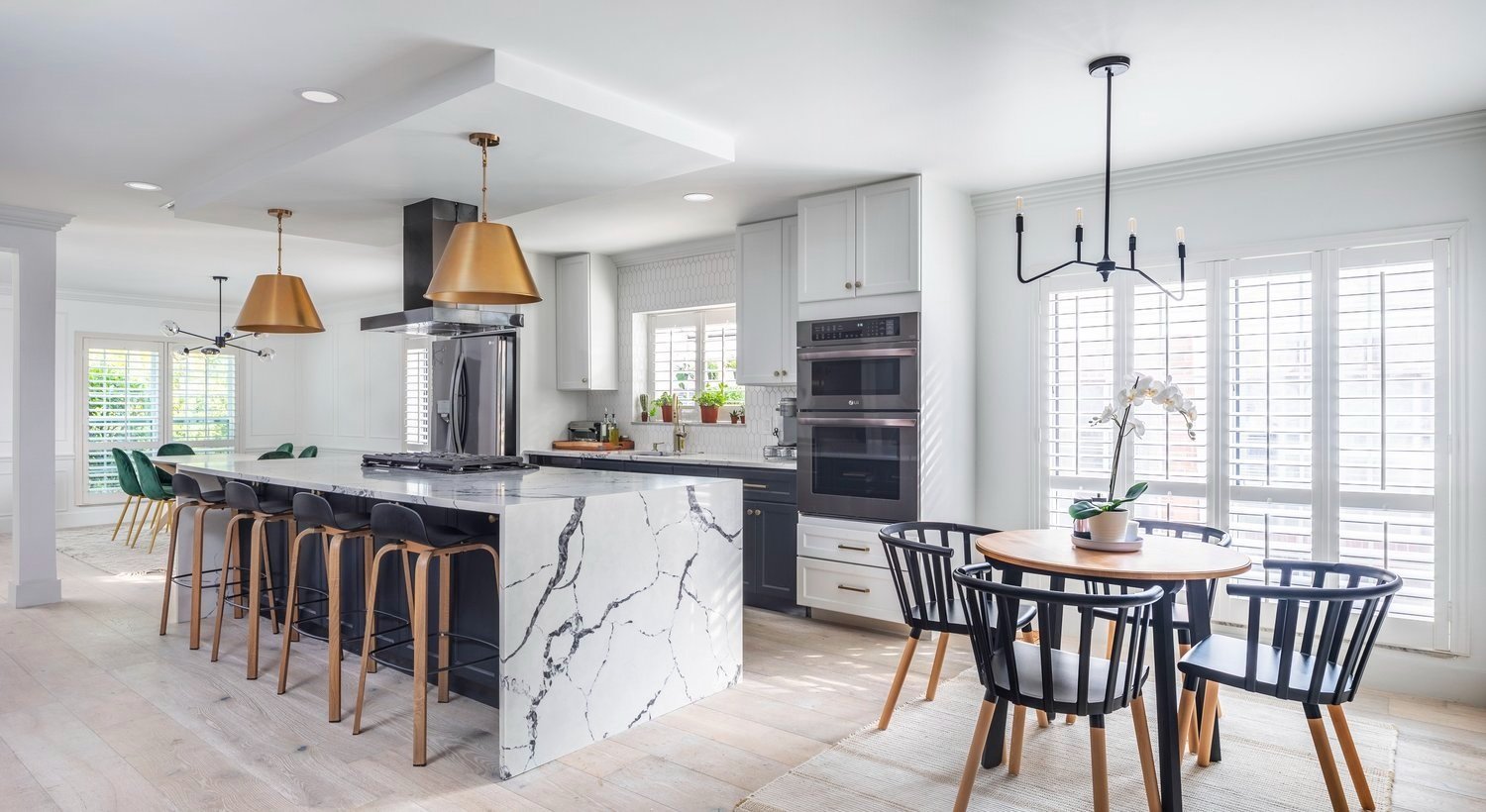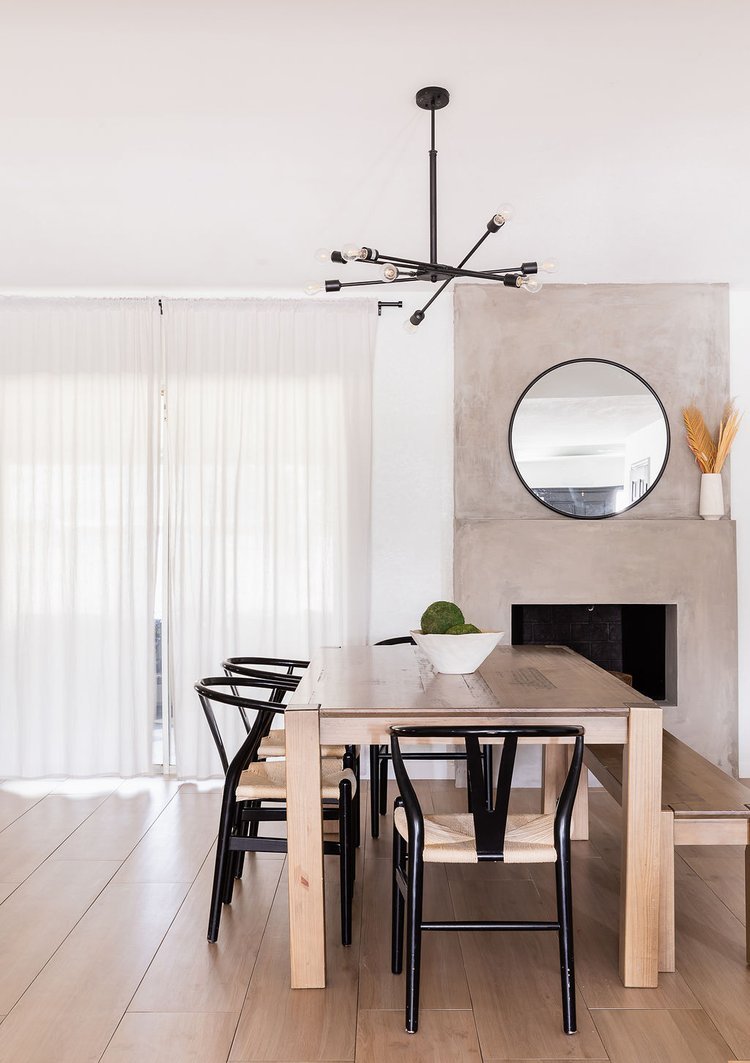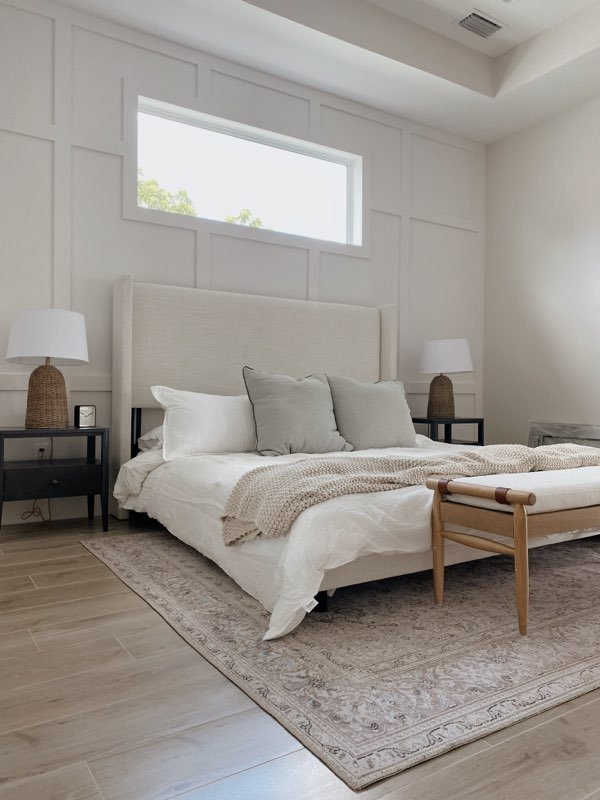Designing and Thriving: Deciding to Ditch the 9 to 5-ing
Degrees of Creativity
Choosing a career path as a young adult is an incredibly loaded task. Understanding oneself is a key component to choosing which direction in life you would like to take. The options are limitless, and that can seem daunting to some and inspirational to others.
I spoke with a longtime friend, previous co-worker, and up and coming expert in the interior design industry, Devin Wiesler to learn more about her journey. For some, deciding what to do with your life can be a scary thought so I wanted to hear about her decision-making process, her struggles post-graduation, and ultimately why she decided to take her career into her own hands.
“The decision to study interior design was a simple choice for me. I’ve always been very creative; drawing, painting and crafting. Pottery Barn Kids was my favorite magazine growing up, I redesigned my room all the time. So the choice was easy and once I was accepted to Florida State University, there was no looking back.”
For context, I went to school with Devin. We started in the same classes together, silently sizing one another up placating our insecurities.
Design school is covertly competitive. Original, creative ideas are hard to come by and the level of quality is exploited when you get twenty eager students working on the same project.
The glamorization of pulling all-nighters, producing extra content just to get ahead, and the critique of others set the tone for what was to come in the real world.
Experiencing Reality
“My first job was at a worldwide textile company. I was doing busy work. I learned a lot from the production side of things and gained perspective from a different sector in the [design] industry but I knew within a few days that I wouldn’t stay at that company long.”
When I asked why she decided to take that job, her answer was relatable, “I needed a job and it felt nice to have something lined up when I graduated.”
We all have grandiose expectations about what our first jobs will look like. After about six weeks, reality sets in and you realize, this is nothing like school.
“In design school, everything is fake. Fake clients, fake projects, fake timelines, fake budgets. When you get hired to work on real projects you start to understand that the main priority isn’t always about design - it’s time and money,” Devin explains.
Since that time, Devin has gained experience in just about every sector of the industry. “As a young designer, it’s easy to get pigeonholed into a certain task, especially at larger companies.”
Diversifying skillsets is important in design roles to add more value to teams and projects. Getting ‘stuck’ in one department over another can affect the trajectory of a designer's career.
And changing jobs in the design industry is more common than not. The work environment, the project types, and the design aesthetic play a major role in happiness in a creative job. Statistics show 1-2 years at a company is the highest tenure rate for interior designers. When I asked Devin if she had experienced turnover at her previous jobs she agreed.
“Working for small companies is great for hands-on experience and getting to learn a lot about business. However, because it’s typically owned and operated by the same person - it gets personal very quickly. Boundaries are crossed a lot and the job becomes less about design and more about personalities.”
Burnout is a huge topic in today's workforce across all sectors and professionals. The need for balance, recalibration, and boundaries are critical for healthy, sustainable work cultures. That said, some industries have a harder time implementing than others.
She further explains, “I also didn’t appreciate the time demands for creative work. Some days I’m a morning person, and some days I work late into the night. Design work stems from inspiration, and passion presents itself at different times. I couldn’t guarantee creativity from 9-5 pm.”
Her experiences working for both large and small companies, architectural firms, and residential and commercial projects all influenced her to make her biggest decision yet.
Calling it Quits on the Corporate Life
“I started my own company almost two years ago. Best decision I’ve made.” She explained that when she first started in her career she never actually wanted to work for herself. “I worked for some business owners and saw how difficult it was. Demanding and stressful day in and day out and I didn’t want that.”
As with most things in life, time brings clarity. “Once I gained more experience and had multiple kinds of projects under my belt, and I was leading a team, I realized, I could do this!” Her perception of running a business mixed with her ambition to do things her way was the guiding light for pushing forward.
Making the choice to start her own company wasn’t an overnight decision. She’d been acquiring small jobs as a side hustle for years, helping clients with decor or small home renovation projects. It wasn’t until her support system finally encouraged her that she decided to take the leap.
When I asked her about the obstacles when deciding to break out on her own, Devin smiled wide and laughed.
“I’ve always been a pretty shy person, so the idea of starting something by myself was intimidating. I’d say I’ve suffered from insecurity and imposter syndrome which makes believing in yourself not always a straightforward task.”
As a licensed interior designer myself, I understand the struggles of believing in yourself and finding your voice. The mindset of ‘fake-it-til-you-make-it’ will only get you so far, especially when you’re working in an industry that requires so much attention to detail and accuracy.
“Once I got certified as a licensed interior designer, I felt like I had more power in my decision-making. It’s not that I technically knew more than I did the previous day, but no one else knew that”, said Devin.
To clarify, NCIDQ Certification is the industry’s recognized indicator of proficiency in interior design principles and a designer’s commitment to the profession. It’s a series of three exams administered twice a year with a pass rate of about 50%. Not all designers decide to get licensed, as it’s not required. I asked Devin for her reasoning to become certified.
“It was never a question of if, but when. Professors in school never wavered on the importance and responsibility I had as a designer to get licensed. The way I see it is it doesn’t harm my career to get licensed - but it wasn’t easy.”
Work Reimagined
Now, working in Orlando, Devin has acquired quite the rolodex of clients in both the commercial and residential sectors. Mini Mod Studio, short for minimalistic modern, is Devin's Interior Design company. The name, Mini Mod, reinforces her style and work, and is a driving factor behind what she does. Her distinct aesthetic and her voice is clear as day upon visiting her website and Instagram.
The company’s growth over a short period of time is a testament to the services and product she produces. When asked about her goals with Mini Mod Studio, she kept it straightforward.
“I want to love my job. I’ll keep doing what I’m doing until that doesn’t happen anymore.”
For anyone looking to step out on their own, whether full-time or part-time the gap between here and there always looks larger than it actually is. Are there other factors besides time, dedication, and passion to making moves toward a dream?
“Surround yourself with people who believe in you and want to see you succeed. They can typically see through your insecurities much more clearly than you can.”
As stress free as this process may seem, starting your own business is nothing but a bumpy ride. It is taxing financially, emotionally and mentally to switch gears from working for someone to working for yourself. As liberating as it feels to cut the shackles of the corporate workplace, not everything was a smooth transition.
“I’m always learning new things, because every client and project is different. But if I had to give a piece of advice it would be to get a lawyer to write your contracts. Otherwise, you’ll learn the hard, and expensive, way why it’s important.”
The modern-day worker is changing, and the causation could be multiple factors; generational workforce mindset, post-pandemic climate, and intrinsic motivations. The once coveted corporate job may need to look toward retirement as more and more entrepreneurs are restless for flexibility and control.
Innovation is key for all things design, including the layout of your career. So get designing!




